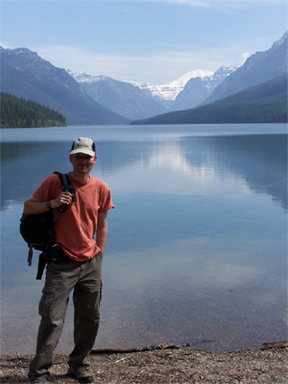
Michael Routhier
Program Coordinator
Geospatial Science Graduate Certificate Program
UNH Graduate School
Michael Routhier is an instructor, program coordinator, and creator of the Geospatial Science Graduate Certificate program at the University of New Hampshire (UNH) as well as the director of the Geospatial Science Center (GSSC) at Earth Systems Research Center (ESRC) at the Institute for the Study of Earth, Oceans, and Space (EOS). His technical specializations include, Geographic Information Systems, Unoccupied Aerial Vehicle (UAV), aerial, and Satellite Remote Sensing, Digital Image Processing, Web Mapping, Environmental Sensor Deployments, Data Archiving, and Geospatial Science Education. His scientific interests are within Earth Systems Science, Geography, Coastal Resilience, and Climate Change research with particular interest in land use and land cover change detection and analysis.
As part of his responsibilities as an instructor, Michael teaches GSS 800: Elements of Geospatial Science, and GSS 805: Applied Geographic Information Systems for Research regularly and has also taught GSS 807 / ESCI 877: Geographic Information Systems for Earth and Environmental Science, GSS 809 / CIE 896: Geographic Information Systems for Water Resources, and NR 760/860: GIS in Natural Resources. Besides teaching non-credit and credit level classes for over twenty years at UNH he has also worked on multiple education and outreach efforts throughout his career. Some of these efforts include mentoring undergraduate college students from Elizabeth City State University in North Carolina and the United Tribes Technical College in Bismarck, ND in active Geospatial Science research and learning within the NASA Research and Discovery (R&D) and Summer Research Experience (SRE) programs. Additionally, from 1998 to 2008 Michael developed and coordinated the NASA funded UNH educational outreach GIS Day Conference and College Fair to excite hundreds of junior and senior level high school students annually about the many career and educational opportunities available to them within the Geospatial Sciences.
As part of his responsibilities as the director of the GSSC, Michael provides Geospatial Science project management and technical support to many NSF, NASA, NOAA, USGS, and NGS funded research projects. His most recent work includes using UAVs to map eelgrass as an indicator of ecosystem health within New Hampshire’s Great Bay and Piscataqua River estuary, using UAVs and satellite remote sensing to map salt marsh grass species along the New Hampshire seacoast to understand the effects of sea level rise on living shorelines, and using streaming sensor deployments to monitor the effects of tidal influences on our coastlines. Michael has also previously acted as the New Hampshire EPSCoR Cyber Infrastructure Team Technical Coordinator for the NSF funded Ecosystems & Society, Safe Beaches & Shellfish, and the Future of Dams projects, completed NGS funded work studying the effects of sea level rise on our coastal cultural heritage at the Strawbery Banke Museum in Portsmouth New Hampshire, provided digital data archive support to the NASA Earth Science Federation Partners (ESiPS) EOS-WEBSTER project for terrestrial system research, provided geospatial analysis support to the UNH ESRC Water Systems Analysis Group for the study of macro-scale hydrology, provided programming support to the NSF, NZ IGNS, and USGS funded VALMAP geospatial data and map visualization system for the study of the McMurdo Dry Valleys in Antarctica, and provided remote sensing, digital image processing, and GIS support for the NASA funded Landsat Pathfinder Tropical Deforestation Project for the study of land cover change in the Legal Amazon Basin in Brazil and throughout Southeast Asia.